Cuba is closer than you think—but traveling there still feels like crossing into a parallel world.
Just 90 miles off the Florida coast, this Caribbean island blends Spanish colonial architecture, Afro-Cuban rhythms, and echoes of the Cold War that still shape daily life.
Once entirely off-limits to Americans without special permission, Cuba has opened up in limited ways, but U.S. travelers still face extra red tape and restrictions, which we’ll cover in this guide.
Cuba’s history is inseparable from revolution, embargo, and resilience.
Its capital, Havana, is a time capsule of pastel facades, vintage cars, and crumbling grandeur.
The beaches of Varadero offer postcard-perfect sand, while Viñales Valley showcases tobacco fields and limestone cliffs.
To the east, Santiago de Cuba pulses with Afro-Caribbean culture and music.
Despite its allure, Cuba is in the middle of an energy and economic crisis that’s affecting both residents and travelers.
Power outages, fuel shortages, and service interruptions are common, which explains why tourism numbers aren’t rebounding after COVID.
Still, 2.2 million international visitors in 2024.
Tourism is still alive, but it’s different now.
If you’re planning a trip, especially from the U.S., expect extra planning and a few more hoops to jump through to make it happen safely and legally.
Warnings & Dangers in Cuba

OVERALL RISK: MEDIUM
Cuba’s current situation, marked by fuel shortages, rolling blackouts, medicine scarcities, and growing civil unrest, makes it a medium-risk destination, especially for travelers with medical needs or limited Spanish. Crime is also a concern. While it's not on the Do Not Travel list, it's a good thing you're reading this article.

TRANSPORT & TAXIS RISK: MEDIUM
Reliable transport is a challenge. Public buses are overcrowded, fuel shortages limit taxi availability, and rental cars are expensive and often in poor condition. Scams and unlicensed taxis are a concern. Apps are unreliable, especially for foreign users with limited internet access. It's a medium risk.

PICKPOCKETS RISK: HIGH
Treat this as a high risk, especially if the economic crisis is still happening when you visit. Petty theft is widespread in tourist zones. Shortages mean locals may see tourists as financial opportunities. Be cautious with phones, wallets, and bags in busy areas. Bag slashing and distraction scams do happen, particularly in Havana.

NATURAL DISASTERS RISK: MEDIUM
Cuba’s hurricane season (June–November) brings real threats, especially given the poor infrastructure. Power and water outages are common after storms, and evacuation logistics can be difficult. In October 2024, Hurricane Oscar made landfall in eastern Cuba during a nationwide blackout, causing severe flooding, landslides, and the deaths of at least seven people.

MUGGING RISK: MEDIUM
Violent crime is less frequent than theft, but desperation has increased due to economic collapse. That's why we're giving this a medium risk. Muggings, while not rampant, do occur—especially after dark in low-traffic areas. Travel in groups, avoid empty streets at night, and don’t flash valuables.

TERRORISM RISK: MEDIUM
There’s no active terrorism threat in Cuba. However, political dissent is not tolerated, and tourists caught in or near protests could face detention. Steer clear of any political activity or anti-government discussions, even casual ones. As with others, treat this as a medium risk.

SCAMS RISK: MEDIUM
Another medium risk here. Scams targeting tourists are common, from fake taxis and inflated bills to counterfeit goods. Dual currency confusion also opens the door for price manipulation. Avoid street vendors and unofficial “guides.” Stick to vetted restaurants and government-regulated services when possible.

WOMEN TRAVELERS RISK: MEDIUM
Street harassment is common, especially toward solo women. While violent assault is rare, persistent catcalling and intrusive attention can make some areas uncomfortable. Avoid walking alone at night, especially in less touristy zones, and trust your instincts. While women face unique challenges in Cuba, it's still a medium risk.

TAP WATER RISK: MEDIUM
Tap water is not safe to drink. Contamination and lack of filtration are ongoing issues. Stick to bottled water and avoid ice or uncooked food that may have been rinsed in tap water. Bring a portable filter if visiting rural areas.
Safest Places to Visit in Cuba
Start with Cuba’s official tourism website, visitcuba.com.
I’m always impressed when tourism agencies address safety concerns.
There’s a helpful article about how to travel there safely.
To save you time reading it, they suggest:
- Hire a tour guide.
- Paying as much as you can ahead of time due to a lack of high-tech financial systems.
- Learn about the specific area where you’re considering booking a hotel. They recommend Vedado and Playa.
- Use the bus to travel the country and a private car to get around Havana.
- Avoid buying souvenirs on busy main streets, and steer clear of restaurants where the prices are unclear. Both are scammy.
If you’re making the effort to get to Cuba, make it count.
Start in Havana, where classic cars, the Malecón, and museums like the Museum of the Revolution give you a crash course in Cuban history and culture.
Viñales Valley is worth the trip for its scenic tobacco farms and limestone cliffs—best explored on horseback or by bike.
Head to Varadero or Cayo Coco for white-sand beaches and turquoise water, with resort comforts if you need a break from Havana’s chaos.
In Trinidad, you’ll find colonial-era streets, live music, and nearby hikes in Topes de Collantes National Park.
Santiago de Cuba offers a deeper look at Afro-Cuban culture, plus a strong music scene and views from El Morro fortress.
Add in a classic cigar or rum tour, some salsa dancing, and you’ve covered Cuba’s essentials—without trying to do it all.
Places to Avoid in Cuba
Tourist zones in Havana and Varadero are heavily patrolled and generally fine during the day, but there are places you don’t want to wander without a plan, especially at night.
Parts of Central Havana, Regla, and the outskirts of Santiago de Cuba can feel edgy after dark, with fewer police and more economic desperation.
Don’t go off-grid thinking you’re discovering the “real Cuba” unless you’ve got local guidance—Google Maps and Wi-Fi won’t always be there to bail you out.
Season-wise, August through October are the heart of hurricane season.
Trips during this time when a hurricane is approaching should be avoided if you don’t want to risk power outages, travel delays, or spending your trip in the dark with no A/C or running water.
Blackouts aren’t just possible—they’re expected.
Also: avoid unlicensed taxis (they’re everywhere), political conversations (they’re not worth the fallout), and any offer that feels “too authentic” to be legit. That “local” cigar hookup?
Probably fake.
That friendly guy who wants to show you around?
He’ll likely expect a tip or more.
This is a beautiful country with real challenges—respect both.
A little caution goes a long way here.
What Americans Need to Know About Visiting Cuba
Traveling to Cuba as a U.S. citizen involves a few more steps than your average vacation.
You’re not technically traveling for “tourism” but under one of 12 approved categories, like “Support for the Cuban People,” which is the broadest and most commonly used.
That means your itinerary should include meaningful cultural or local engagement, not just beach lounging.
U.S. debit and credit cards won’t work in Cuba.
Not at ATMs, not in restaurants, and not at hotels.
Bring enough cash to cover your entire trip, preferably in euros or Canadian dollars, then exchange it at official CADECA exchange offices.
U.S. dollars are now accepted again, but exchanging them can come with extra fees or worse rates.
You also can’t use U.S.-based booking platforms (like Airbnb, Expedia, or Booking.com) to reserve stays or transportation in Cuba.
You’ll need to use alternative platforms or work through a travel agency that understands the rules.
Cuba requires all travelers to have medical insurance valid in the country, and U.S. health insurance doesn’t qualify.
Most airlines flying from the U.S. include basic coverage through Cuba’s official provider, Asistur, with your ticket—your boarding pass serves as proof.
Confirm with your airline before departure.
If not included, you’ll need to buy coverage on arrival.
Bottom line: you can visit Cuba as an American, but you’ll need to plan carefully, stay compliant, and be prepared for workarounds that don’t apply in most other destinations.
Safety Tips for Traveling to Cuba
- Cuba’s police are highly visible in tourist zones, but not always quick to act. Dial 106 for emergency police response. That said, don’t expect English-speaking officers or Western-style service. Minor crimes often go uninvestigated, so take your own precautions and report serious incidents through your embassy if needed.
- For hurricane alerts and natural disasters, check INSMET (Cuba’s Meteorological Institute) or the U.S. Embassy in Havana for English-language updates. Local alerts may be announced via radio or TV, but not through text or app notifications. If you’re traveling during storm season, watch forecasts before and during your trip—information flow isn’t always consistent once you’re there.
- You’ll need a valid driver’s license and nerves of steel. Roads are poorly maintained, signage is minimal, fuel is hard to find, and GPS often fails. Local drivers may ignore basic road rules. Add in cyclists, pedestrians, and roaming animals, and you’re looking at a high-risk driving environment, especially outside the cities.
- In Cuba, if you’re in a car accident that results in injury or death, it doesn’t matter who’s at fault—you can be detained during the investigation. Cases involving foreigners can take weeks or months to resolve. This isn’t a place to take chances behind the wheel. Drive defensively and consider hiring a local driver instead.
- S. carriers like AT&T, Verizon, and T-Mobile offer roaming in Cuba—if your phone is compatible. But the service is spotty, and data speeds are slow. Wi-Fi is limited, expensive, and often unreliable. Check with your carrier before you go and download offline maps, translation apps, and documents before you arrive—you won’t want to rely on cloud access.
- You can bring home Cuban art, books, and some items made by independent entrepreneurs—but not cigars, rum, or anything mass-produced. Sculptures and paintings may require an export permit from the Cuban Fund of Cultural Assets. No permit = no souvenir. U.S. Customs won’t help, and neither will the embassy if your item is confiscated.
- Avoid snapping photos of military sites, police, or government buildings—it can land you in legal trouble. Also, street performers and locals in traditional dress often expect payment for photos. If someone jumps into your frame, assume it’s a hustle. When in doubt, ask—and keep a few small bills handy for quick tips.
- English isn’t widely spoken, even in tourism. Menus, signs, and conversations are usually in Spanish. Download Spanish translation apps, carry a cheat sheet for essentials, and brush up on basic phrases. A few polite words go a long way—and could help you navigate a blackout, a hospital visit, or just ordering dinner.
- Casa particulares (private home rentals) are color-coded for tourists. Blue signs are legal and safe. Orange signs mean the property is under review, out of compliance, or not licensed to rent to foreigners. Stay away. Stick to vetted properties on official platforms or get a recommendation from a hotel or licensed guide.
- Because U.S. cards don’t work, you’ll be carrying a lot of cash. Don’t flash it. Break bills into smaller denominations and split them up between bags. Most scams and petty theft happen when tourists visibly show they have money. You don’t need to be paranoid—just not obvious.
So... How Safe Is Cuba Really?
Most advisories from other countries agree that Cuba is a Level 2 on the four-tiered risk rating, but they don’t all agree on why.
For example, the United States uses Level 2: Exercise Increased Caution due to crime, including petty, violent, and property crimes.
At the same time, Canada’s Level 2: Exercise a High Degree of Caution is “due to shortages of basic necessities.”
That includes food, fuel, power, water, and medication.
Canada does lean back on the risk in the Archipelago of Jardines del Rey and resort areas.
That’s at Level 1: Exercise Normal Precautions.
Australia’s Level 2: Exercise a High Degree of Caution is due to the threat of violent crime.
The bottom line?
There are inherent risks in Cuba that go beyond common sense and basic personal safety tactics.
Only you can decide if the risks are worth the reward of the cultural and natural benefits.
How Does Cuba Compare?
| Country | Safety Index |
|---|---|
| Cuba | 47 |
| Djibouti | 38 |
| Croatia | 83 |
| Mexico | 65 |
| France | 64 |
| Puerto Rico | 34 |
| Somalia | 16 |
| United Kingdom | 77 |
| Peru | 50 |
Useful Information

Visas
Most travelers to Cuba, including Americans, need a tourist card (often called a visa) to enter. These are typically issued through airlines or travel agencies. U.S. citizens must also meet one of 12 authorized categories of travel. Always check current entry rules with both your airline and the Cuban embassy before departure.

Currency
Cuba now operates primarily in Cuban pesos (CUP), but foreign visitors often use credit or debit cards—except U.S.-issued ones, which won't work there. Exchange cash to CUP at official exchange houses or ATMs. U.S. dollars are no longer penalized, but are still better exchanged before arriving. Avoid black-market exchanges—they’re illegal and risky.

Weather
Cuba has a tropical climate with a dry season (November to April) and a wet, hurricane-prone season (May to October). Summer is hot and humid, with sudden downpours. Hurricane season peaks from August to October. Always monitor forecasts if visiting during this period, especially in coastal or low-lying areas.

Airports
José Martí International Airport in Havana is Cuba’s main international hub. Facilities are limited—expect long waits, basic amenities, and sporadic Wi-Fi. Smaller airports like Varadero and Santiago de Cuba serve regional travelers. Flights from the U.S. are typically limited to Havana, though some routes to other cities operate via third countries.

Travel Insurance
Cuba requires proof of health insurance for entry, and it must cover medical expenses in Cuba. If you arrive without it, you may be required to buy a local policy at the airport. Travel medical care is often cash-only for foreigners, so make sure your policy includes emergency evacuation and repatriation coverage.
Cuba Weather Averages (Temperatures)
Average High/Low Temperature
| Temperature / Month | Jan | Feb | Mar | Apr | May | Jun | Jul | Aug | Sep | Oct | Nov | Dec |
|---|---|---|---|---|---|---|---|---|---|---|---|---|
| High °C |
22 | 26 | 27 | 28 | 29 | 30 | 32 | 32 | 31 | 30 | 28 | 27 |
| Low °C |
17 | 18 | 20 | 22 | 22 | 23 | 25 | 25 | 24 | 23 | 22 | 21 |
| High °F |
72 | 79 | 81 | 82 | 84 | 86 | 90 | 90 | 88 | 86 | 82 | 81 |
| Low °F |
63 | 64 | 68 | 72 | 72 | 73 | 77 | 77 | 75 | 73 | 72 | 70 |
Cuba - Safety by City
| City | Safety Index |
|---|---|
| Havana | 46 |
| Varadero | 70 |
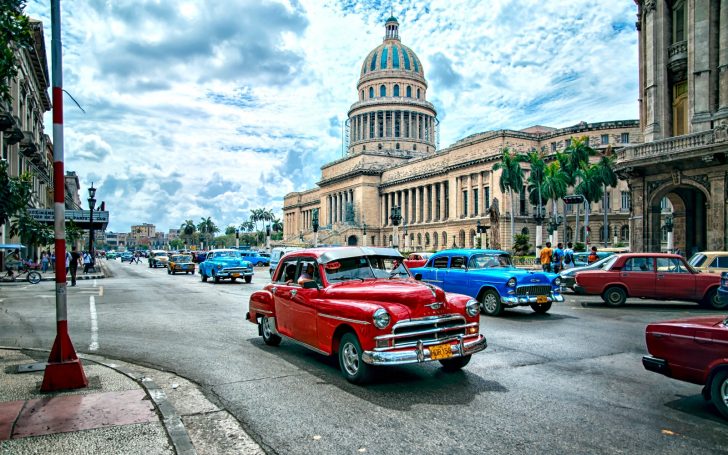
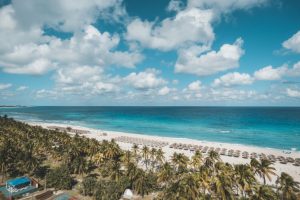
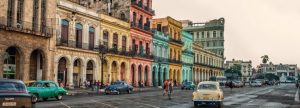
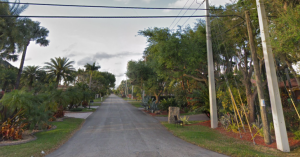
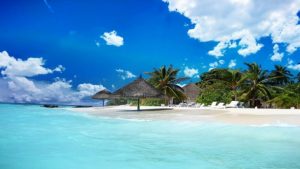
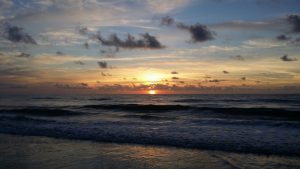
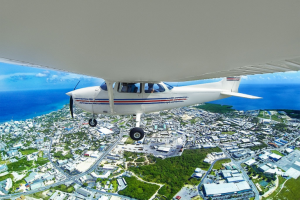





Safest I’ve ever felt
I have honestly never felt safer as a tourist than when travelling in Cuba. The penalties for crimes against tourists are so draconian that the risk is very low. You are pestered by con artists but just be polite and firm.
That is the thing. While it is safe for us to travel, it is NOT safe to live there. I have family there (on my wife’s side) and I know what terrible things take place. It is not somewhere I would vacation to, ever. I go with her to visit family. We are working on getting some of them out to become US citizens as she did.
I dont get why we need to know this if we arent planning to live there? This website is about travelling not living
Because the way a country treats its people is a deciding factor for some folks when deciding where to spend their money.
Hi Chris, How certain are you about the safety of tourists in Cuba?
Not sure if this rating is for Americans only or something … but is very unjust
Cuba is very safe country
What makes you say that Cuba is safe?
Love Cuba
Cuba is very safe. I love it there, and is my favorite country to visit. The people are very friendly and respectful. Of course you have minor scams, but what do you expect. Nothing bad to say, just respect the laws and the government rules, and you will have the best vacation ever
Amazing place
Loved Cuba! Amazing place, friendly people and Havana is just draw-dropping!!!
Note to editors – how can it only have a safety rating of 47, despite you claiming it’s ‘very safe’ throughout the whole of the article?! Just doesn’t make sense!!!
For me,most safe place in the world!!
I´m from Denmark,nr. 2 safest place,honestly im in Cuba every winter and feel MUCH safer
than i do in Denmark where we have gang war and homeless people sleeping in the streets
during the winter,police acting violent and incorrect and even some terrorist action.
I seen several police actions in Cuba,always with large patience and corect handling.
For me it is nonsenses that DK is 2 and Cuba 47!!!,it should be the other way around!!.
Most dangers must be some terrorist actions years ago performed with support from USA via
CIA. Mostly using exile Cubans to perform it.E.G. One Italien tourist died and 11 wounded when Hotel Copacabana was bombed 🙁 back in 97,along with 3 other Hotels.
I have been to Cuba 5 times and enjoyed every minute of it. So much history to learn and the architecture is spectacular and found the Cuban people to be very warm and friendly for the most part. My personal experience is that Cuba is very safe, I did not feel threatened at anytime and that included wandering around Havana at night which I can’t say about Mexico. Plan on returning to Cuba when this Covid show is over and will make it an extended stay the next time
Ah, Cuba!
Cuba is actually quite safe or at least you feel safe. I was with some friends and we had a lot of fun. Nothing out of the ordinary happened (nothing bad that is). Varadero Beach was special plus I highly recommend the Jardines De La Reina and Old Havana. For a good place to stay in the Hostal Refugio de Reyes is pretty affordable and very nice.
¯\_(ツ)_/¯
Why do they only have one MacDonalds?
No MacDonald's restaurants in Cuba
There are no MacDonald’s restaurants in Cuba. You may find one in Guantanamo, however.
Cuba is very safe-but use your common sense and do research before you go
I’ve been to Cuba 15 times and I consider it to be very safe. Granted, there are plenty of Cubans that try to scam you-e.g., take you to a bar for a drink (for which you’ll have to pay an exorbitant price), ask you for gifts, claim it’s their birthday, etc., but a firm “NO” usually works. Also knowing some super basic Spanish helps a lot. We’ve used private (unlicensed) taxis many times with no problems. We always agree on the price beforehand-and to be very clear, we write it down so there are no problems or misunderstandings later on. On many occasions we walked at night in various towns and cities, with our cameras, and felt very safe.
You say, “here are two currencies in Cuba: Cuban Pesos (CUP) and Cuban Convertible Pesos (CUC). Tourists usually use the CUC”. Please update your information: as of January 1, 2021, there is only one currency, Cuban Peso (CUP), which by the way, decreased from 25 pesos for $1 to about 200 peso for $1. US & Canadian dollars, Europ and credit cards are the main means of payments.
It is not the same as the past – no food, no electricity and blackouts, government more oppressive, gas and food shortages and lots of petty crime – your article while entertaining fails to mention Cuba supports Russia and Russians are taking over sugar factories in Cuba and much more – tourist dollars support the tyranny of the Cuban government. If Cuba is so great why are they vast majority trying to escape?
Everything looks and feels unsafer than it actually is
In Cuba, everything, the cities, streets, shops, people look and feel unsafer than they in fact are. The streets and shops are darker in the night due to the scarcity of
electricity. Especially in somewhat smaller cities like Santa Clara, there isn’t any reason for being scared or concerned. People are incredibly friendly and helpful. Even in the darkest streets you will encounter dancing and singing people. Even in Havana we felt unsafe in the beginning, but two days later we realised that there is no need at all to get concerned. Just try to get relaxed 🙂